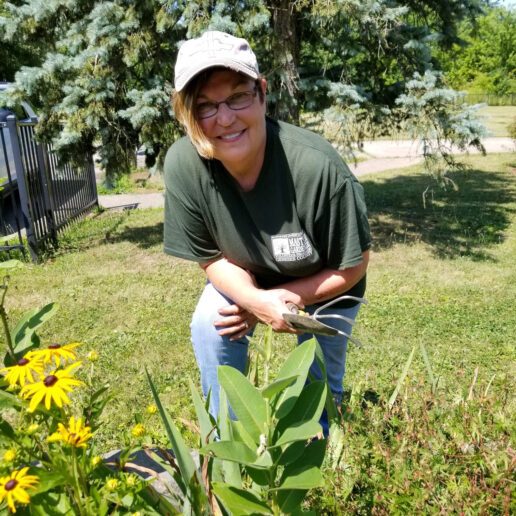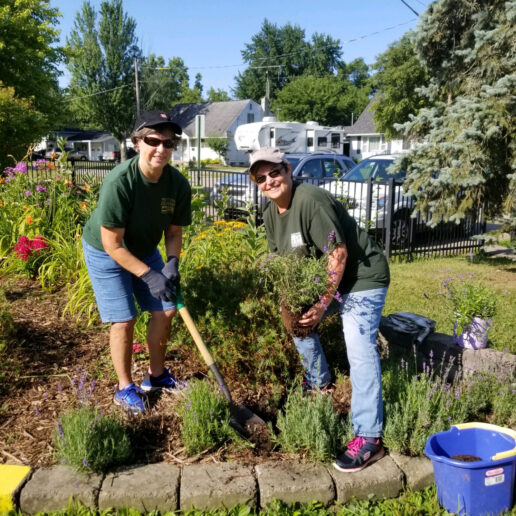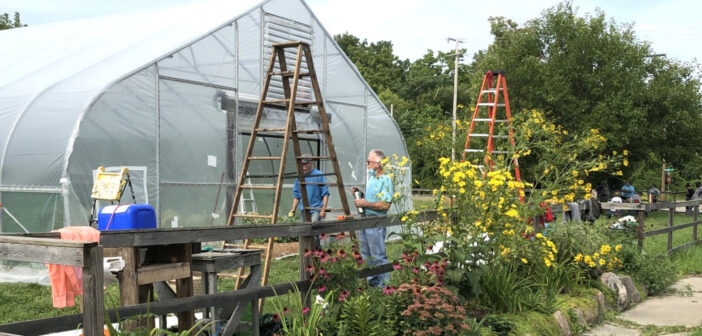Master Gardeners are known for their passion for gardening and volunteering through community garden education. Founded in 1978, the Master Gardener Association of Genesee County (MGAGC) is organized exclusively for charitable, educational and scientific purposes, specifically to instruct adults and youth in horticulture science, to educate communities about environmentally sound practices through horticulture-based activities, to promote food security and to improve the aesthetic of our community.
Michigan State University Extension offers a program, “Foundations of Gardening’’ that begins the process of becoming a master gardener. The Master Gardener Association of Genesee County Michigan (MGAGCM), is a separate organization of local Extension Master Gardeners (EMGs), according to Barslund Judd, a member of the MSU Extension Consumer Horticulture Educator team along with other MSU Educators from around the state. “We offer online education and do presentations at local home and garden shows, libraries and community centers,” he states.
Judd oversees the EMG volunteers, training them and connecting them with projects after they are trained. His region includes Genesee, Saginaw, Shiawassee, Bay, Midland and Tuscola Counties. “MGAGCM helps raise funds to support our programming and to support the greater organization,” Judd explains. “All members are Extension Master Gardeners. A colleague of mine compares it to a high school sports booster club. Here in Genesee County, we have EMG volunteers at many different projects who help with other organizations.”

EMG Project Lead Deb Glastetter helps organize workdays at Rust Park and educational programming for neighboring Indian Hill Elementary School.
According to Judd, Rust Park in Grand Blanc and the Edible Flint Educational Garden are both MSU Extension approved projects. Rust Park has several gardens cared for by local garden clubs and EMGs. “Deb Glastetter is Extension Master Gardener Project Lead at Rust Park and helps organize workdays and educational programming for the elementary school next door,” says Judd. “Over the last three years, Edible Flint has donated two tons of food each year, fruits and vegetables grown onsite.” The farm has a children’s garden, herb garden, pollinator garden, hoop houses and fruit trees. “We are lucky to have them as a partner for our EMGs to work alongside.” Educational signage funded by MGAGCM can be found at both locations. They also occasionally help fund the purchase of plants at approved MSU EMG projects, and have volunteers who are partnered with local teachers to educate children about horticultural topics in the classroom. “Some of the volunteer groups work at various local park systems,” Judd states. “There are a lot of different things our volunteers help with in the community.”
So, how does one become an EMG? According to Judd, there are two requirements in the Master Gardener Program: Complete the “Foundations of Gardening” (FOG) course and then apply to take the local EMG training with a consumer horticulture educator. The course is taken online, while the EMG training is done in person, hands-on. Both are offered twice a year. When you have taken the course (you get a certificate), attended the onboarding and completed the Volunteer Selection Process, you are a trainee. After completing 40 volunteer hours in various educational projects to select from, you have then reached Extension Master Gardener status. “The great thing about it is you don’t have to commit to being a volunteer,” Judd says. “You can take the class to enrich your own personal gardening.”

Extension Master Gardener Volunteers Deb Glastetter (right) and Loretta Elwood helping to make Grand Blanc’s Rust Park more beautiful.
The main goal of MGAGCM is to educate the public about horticulture topics, Judd points out. There is an online tool that allows people to submit questions, which many of the volunteers help to answer. The Association also supports master gardeners with fundraising activities and by providing extra education for people who are already master gardeners.
Along with the work the volunteers do at Edible Flint, the Association has taken on various other projects including rest areas, the Flushing River Trail, Crossroads Village and various schools, among many others. “Quite a few of our volunteers work at the parks,” says Judd. Joanie Snyder heads a group of volunteers at Crossroads Village and has been with the program for many years. “She is an amazing park volunteer!” Judd exclaims. “All of the volunteers stay busy. They really give a lot.”
For more information about the MSU Extension Master Gardener program, visit canr.msu.edu/courses/foundations-of-gardening and canr.msu.edu/master_gardener_volunteer_program/














